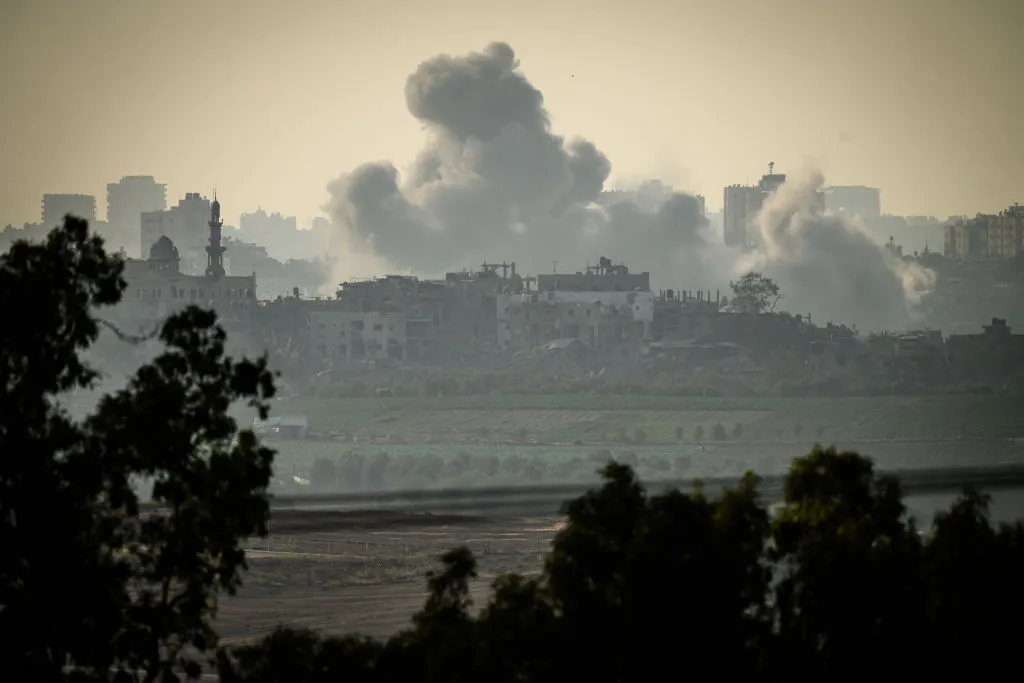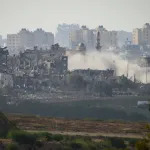
As Israel continues to launch airstrikes on Gaza following an attack by the militant group Hamas, a growing number of arts institutions, organizations, and prominent arts professionals are weighing in on the conflict.
On October 7, Hamas led on an attack on Israel that involved killing 1,400 citizens, wounding 3,500 more, and taking more than 200 hostages. (Just a few have been released.) Israel’s military responded by cutting off food, water, and electricity, and launched sustained airstrikes that have killed more than 3,000 people in Gaza, according to its health ministry. Last week, Israel ordered more than 1 million Palestinians who live in northern Gaza to evacuate the region, a move that the United Nations said is “not feasible” and “could transform what is already a tragedy into a calamitous situation.”
Against the backdrop of these events, some have called on art institutions to release statements in support of both Israel and Palestine.
Earlier this month, Katya Kazakina published an Artnet column in which she condemned the art world for its “deafening silence after the Hamas attack in Israel.” Meanwhile, an array of artists and art professionals signed an open letter that was circulated by Artforum and e-flux and called for and end to “institutional silence around the ongoing humanitarian crisis that 2.3 million Palestinians are facing in the occupied and besieged Gaza Strip be broken immediately.” (After Artforum ran the letter, dealers Dominique Lévy, Brett Gorvy, and Amalia Dayan wrote a response in which they said they “condemn the open letter for its one-sided view,” since the original letter did not include mention of the Hamas attack.)
In the past week, statements have begun to emerge from institutions across the globe. Several based in the Middle East came out in favor of Palestine.
The United Arab Emirates–based Sharjah Art Foundation, which organizes the prestigious Sharjah Biennial, wrote on Instagram that it “firmly in solidarity with Palestine in the face of devastating genocide being carried out on Gazans and the 75 yeas of ongoing illegal Israeli occupation.”
The Jameel Arts Centre in Dubai wrote on Instagram that its team “mourns the loss of all the innocents lives and stands with Palestinians colleagues their friends and families, and all those affected by the devastating assault on Gaza.” The center is managed by Art Jameel, an organization which also oversees Hayy Jameel, an arts complex in Jeddah, Saudi Arabia.
The Qatar Museums has not explicitly condemned the siege of Gaza, but it did appear to throw their support behind Palestine, projecting its flag onto the facade of the Museum of Islamic Art shortly after the Hamas attack. “Oh Allah, we entrust Palestine and its people to you,” wrote Sheikha Al-Mayassa, the sister of Qatar’s ruling Emir and chairperson of Qatar Museums, in an Instagram post featuring images of the projection.
Most museums in the US have not commented at all on the situation. New York’s El Museo del Barrio, one of the few institutions to have done so, issued a statement in which it wrote, “During these fraught times, we continue to host visitors and artists of diverse and differing beliefs and viewpoints.” The museum said its “sympathies go out to those who are directly, or indirectly by way of diaspora or heritage, affected by the conflict.”
The Jewish Museum in New York took a less ambiguous stance, writing, “We stand in solidarity with the people of Israel during this challenging time and express our heartfelt condolences to the families who have lost their loved ones or who have been taken hostage in these senseless acts.”
Meanwhile, the director of every major museum in Israel signed an open letter calling on the International Council of Museums (ICOM) to condemn Hamas “with the utmost fervor.” The open letter was published on October 22 by the Israeli division of ICOM, an affiliate organization of UNESCO which suggests ethical standards for museums worldwide.

